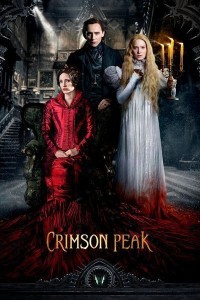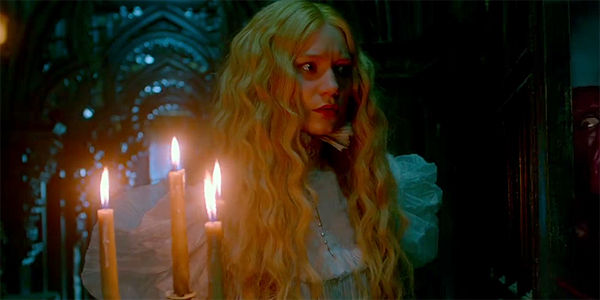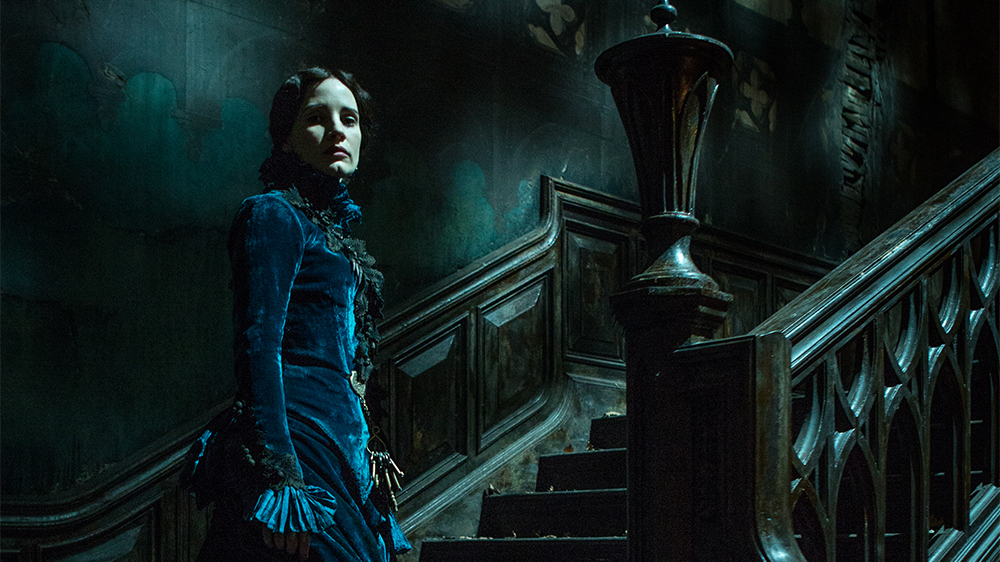
 There is no other filmmaker similar to Guillermo del Toro. This visionary has brought us a wide variety of brilliant films over the years including Pan’s Labryinth, Pacific Rim, the Hellboy films, and most recently, Crimson Peak. All films that happen to feature incredible female characters.
There is no other filmmaker similar to Guillermo del Toro. This visionary has brought us a wide variety of brilliant films over the years including Pan’s Labryinth, Pacific Rim, the Hellboy films, and most recently, Crimson Peak. All films that happen to feature incredible female characters.
Guillermo del Toro has mastered telling his stories with women in prominent roles without pandering to women specifically as an audience.
Crimson Peak is the most vivid in my mind at the moment as I’ve just retwatched it, but it also happens to be a great example of exactly what del Toro does. Mia Wasikowska plays Edith, a young woman aspiring to be a writer. She’s not content to live her life by someone else’s definition of what her life should be. She knows what she wants and she doesn’t let anything stand in her way. The other women in her life disapprove of what she is, a bit like what you see in Pride and Prejudice. She doesn’t let it get to her and pushes forward with what she is familiar to her, in many different forms.
When her writing is rejected because it doesn’t fit into a man’s idea of what a women should be writing about, she doubles down and finds a way around the gatekeepers. There are comparisons throughout the film of butterflies to moths, with Edith being the former and Lucille Sharpe being the latter.
Edith is an amazing woman who turned out that way from the love and care of her single, widowed father and despite the fact that she is quite literally being haunted. She is a butterfly that flits through her life on her path that she has set out on.
Things change for her after her courtship with Thomas Sharpe begins, and her subsequent marriage to him. Her costumes deliberately begin to reflect the drastic turnaround in her life as she becomes more of a chrysalis once again and instead of coming out a different kind of butterfly, she evolves into a sort of hybrid version of the moth that Lucille Sharpe is, but out of necessity and not cruelty. She finds this amazing will to survive and persevere through the trials placed before her.

On the opposite spectrum of things, there’s Lucille, played by Jessica Chastain. Beautiful, cold and calculating, she is the predatory moth to Edith’s butterfly. The choices she makes are selfish decisions that only further her interests.
Lucille knows right from wrong but acts on what will maintain the lifestyle that she has grown accustomed to and the love that she bears for Thomas. She perceives threats and eliminates them from her life.

Crimson Peak is a Victorian gothic romance and while del Toro treats the women of his films with a lot of respect, it wasn’t the best of times for women in general. Lucille is, in a lot of ways, what Edith could’ve been with a different family. Lucille witnessed much cruelty as a child and that seeped into her core, whereas Edith lost her mother early on but had an incredibly loving father to help balance her life out. While the comparison of butterflies to moths is used in the film, it’s the classic story of light vs. dark, good vs. evil, and right vs. wrong.
Thomas acts as a sort of middleman between the two women. He is the catalyst for the things that transpire but the story of Crimson Peak is Edith’s tale and Lucille’s, and despite how you may feel about them, they’re well-written characters that feel remarkably real to viewers such as myself.
Guillermo del Toro is a master filmmaker that manages to take an era where women are barely considered people and creates a story that features women making the best of the situations presented to them and showing that women have always had the ability to take the fate of their lives into their own hands.



